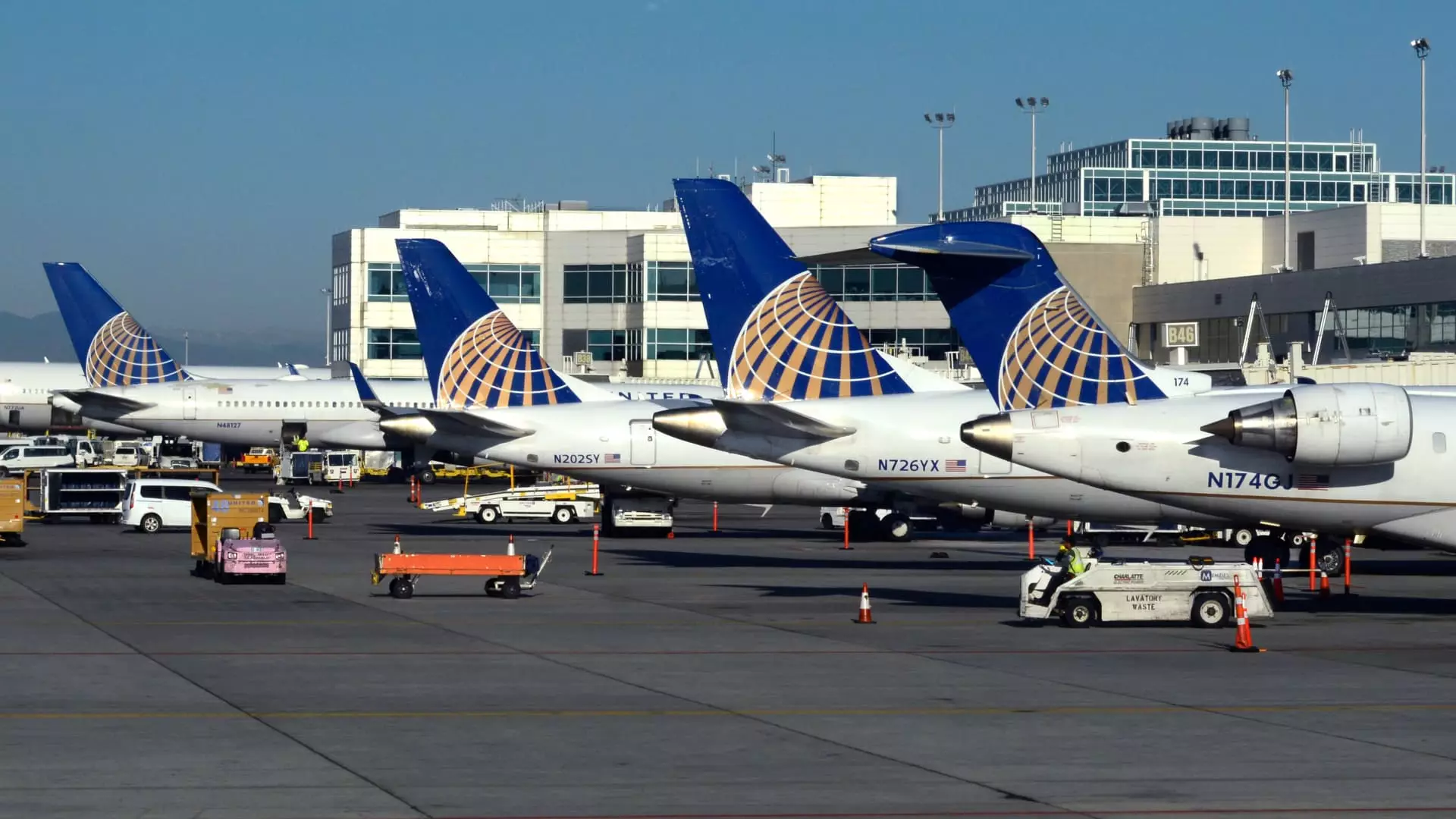In a bold move that has reverberated through the airline industry, United Airlines is raising fees for its annual airport lounge memberships and rewards credit cards. This development has ignited a debate about just how far airlines can push their loyal customer base before the loyalty begins to erode. With consumer tolerance for increased costs waning, United seems to be playing a risky game of balancing profitability with customer satisfaction. As they introduce these changes, one cannot help but question whether the perceived value of the perks offered will truly outweigh the increased costs.
A Shift in Airline Loyalty Programs
United’s recent changes reflect a broader trend in the airline industry where carriers have steadily increased the cost of essential travel perks while simultaneously introducing new benefits. While Richard Nunn, chief executive of United’s MileagePlus, suggests that the “value increments” will offset the fee hikes, the skepticism among travelers is palpable. Many frequent flyers are exhausted by the incessant upcharges on everything from checked baggage to premium lounge access, which used to be bundled in the price of a ticket or a credit card. The challenge ahead is thus enormous: can United not only retain its customer base but also encourage new sign-ups in an increasingly crowded field of consumers who feel taken advantage of?
Raising the Bar: New Perks and Their Implications
The addition of rideshare credits and award flight discounts as part of the perks for co-branded cards sound enticing—until you consider this new reality comes at a higher price. Is a modest discount on award flights worth the additional annual fee? With airlines continually enhancing their loyalty programs, one must ponder whether these enhancements are genuine efforts to foster customer relationships or simply strategic maneuvers designed to lure in additional revenue. The benchmark for loyalty has shifted dramatically; in today’s market, a mere one-time bonus or slight discount no longer suffices in persuading travelers to commit their financial resources to an airline.
The Risk of Alienation
There is a fine line between improving service offerings and alienating loyal customers. United’s strategy of catering to the growing elite status of travelers and premium credit card holders has led to overcrowded lounges and diminishing resources for those who remain loyal without the perks of elite status. As more travelers flock to the skies, the risk of diluting the experience for long-standing United passengers grows. Can a brand still consider itself “customer-centric” when the very customers that built it are left feeling sidelined?
Economic Diversification vs. Customer Loyalty
With revenue from loyalty programs surging—including an impressive $3.49 billion last year—airlines are under tremendous pressure to capitalize on every available revenue stream. Yet this focus on diversifying income can inadvertently lead to a disconnect with consumers. For a successful loyalty program to endure, it must mirror genuine customer appreciation, not just a calculated assessment of how much consumers are willing to pay for perks. Travelers today want to feel valued, not merely as a source of revenue but as crucial participants in the airline’s continued growth.
As United Airlines embarks on this new venture to increase fees while adding so-called value, they must remain vigilant and receptive to their customers’ needs. True loyalty is earned, not bought—something that will become increasingly apparent as this industry continues to evolve.


Leave a Reply